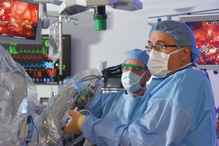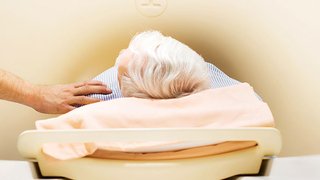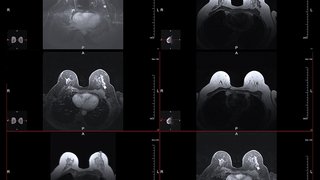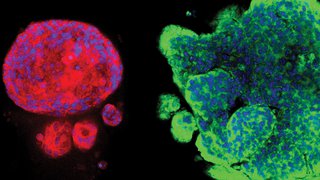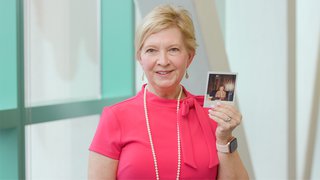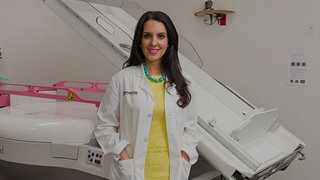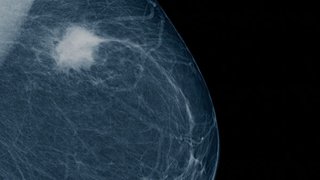Taking Robotic Surgery to the Next Level
May 15, 2024
Breast Cancer; Cancer; Gastrointestinal Cancer; Patient Care
From breast cancer to gastrointestinal tumors, UTSW faculty are shaping the future of robotic surgery.
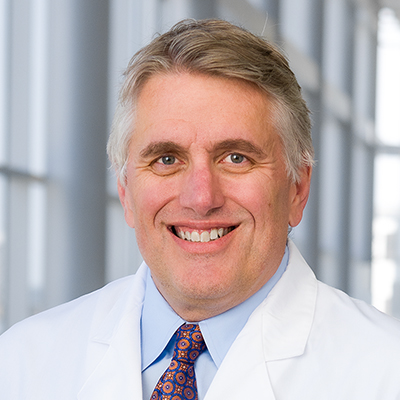
UT Southwestern Harold C. Simmons Comprehensive Cancer Center is solidifying its reputation as a global leader in robotic surgery as faculty members build on the institution’s proven track record of success in breast and gastrointestinal cancers as well as surgical education.
“Through years of practice, we have been pioneers in developing and advancing robotic surgery for many indications,” says Adam Yopp, M.D., Professor of Surgery and Chief of the Division of Surgical Oncology at UT Southwestern. “In addition, our state-of-the-art Simulation Center has helped position us as a global leader in surgical education.”
For years, Dr. Yopp and his team of surgical oncologists, including Deborah E. Farr, M.D., and Patricio Polanco, M.D., both Associate Professors of Surgery in the Division of Surgical Oncology, among others, have consistently been at the forefront of advancing robotic surgical technology and imparting their knowledge to surgeons worldwide.
New Approach to Robotic Mastectomy
UT Southwestern stands out as one of the few centers in the world that performs robotic mastectomy surgeries. In 2020, Dr. Farr, in collaboration with plastic surgeon Nicholas Haddock, M.D., performed the first single-port robotic nipple-sparing mastectomy (or rNSM) in the country.
They introduced the novel robotic surgery procedure to their North Texas patient population with the goal of effectively removing the cancer and reconstructing the breast tissue without the negative long-term repercussions of a traditional mastectomy for breast cancer. After receiving Institutional Review Board approval, they began enrolling patients into a clinical trial to evaluate the technique.
“When I presented our outcomes data nationally for the first time, many surgical oncologists were baffled that we could perform a thorough mastectomy through such a small incision,” Dr. Farr says.
A study published in January 2024 in the journal JAMA Surgery reported excellent results among the first 20 patients who underwent the procedure using the new robotic techniques at UT Southwestern.
“We have achieved the original goals of the procedure – better teaching visualization and more aesthetic outcomes,” Dr. Farr notes.
The team also discovered another outcome they hadn’t anticipated using the new robot-assisted surgical procedure.
“While modern mastectomy and breast reconstruction have made great strides, most approaches still result in loss of full sensation in the nipple and breast due to nerve damage from stretching and cutting the breast tissue,” Dr. Farr says, adding that was not the case with rNSM. “Almost all patients in the initial study retained sensitivity in their breasts.”
After more than 60 rNSM procedures at UT Southwestern, 88% of patients have reported still having sensation, which is key for maintaining their quality of life after treatment.

Leadership in Robotic Pancreas Surgery
In addition to breast cancer, UT Southwestern is renowned for its groundbreaking work in robotic surgery for pancreatic cancer.
According to Dr. Polanco, the Whipple procedure has traditionally been performed to attempt to remove a pancreas cancer through a large incision in the abdomen, requiring an extended hospital stay and long recovery.
At UT Southwestern, he and his team have specialized training in robotic-assisted pancreas surgery, a more precise approach through smaller incisions that has been shown to benefit patients with faster recovery times and less pain. Robotic pancreatic cancer removal has also been shown to have comparable outcomes with fewer complications than open surgery.
Led by robotic pancreas surgery pioneer Herbert Zeh III, M.D., Professor and Chair of Surgery at UT Southwestern, the gastrointestinal surgery program has become one of the few international centers of excellence for this approach. Patients travel from throughout the U.S. to receive the robotic pancreaticoduodenectomy (also known as the Whipple procedure) at UT Southwestern.
Besides the pancreaticoduodenectomy, several other robotic pancreatic surgeries are routinely performed at the institution, including distal pancreatectomies, tumor enucleations, and bypass procedures for chronic pancreatitis, among others.
In March 2022, the surgical oncologists organized a symposium and invited surgeons from around the world to observe UT Southwestern’s robot-assisted surgical procedures: robotic Whipple for pancreatic cancer, robotic hepatectomy for liver cancer, and rNSM for breast cancer.
In addition, visiting international surgeons regularly spend time at the UT Southwestern Simulation Center to immerse themselves in hands-on training rather than just observing procedures and techniques. UT Southwestern surgeons, including Dr. Polanco, have also visited those surgeons’ hospitals to provide additional guidance and skill refinement in robotic-assisted surgical techniques.
Adam Yopp, M.D., is Professor of Surgery and Chief of the Division of Surgical Oncology at UT Southwestern, as well as Surgical Director of the Liver Tumor Program. He specializes in surgeries for cancers of the gastrointestinal tract, liver, pancreas, stomach, and bile duct. Dr. Yopp holds The Occidental Chemical Chair in Cancer Research and is a member of the Experimental Therapeutics Research Program at Simmons Cancer Center.
Patricio Polanco, M.D., is Associate Professor of Surgery in the Division of Surgical Oncology at UT Southwestern, as well as Director of Robotic Surgery Training, Co-Director of the Pancreatic Cancer Program, and Co-Director of the Pancreatic Cancer Prevention Clinic. He focuses on gastrointestinal cancers and has advanced training in minimally invasive techniques, robotic surgery, cytoreductive surgery, and hyperthermic intraperitoneal chemotherapy. Dr. Polanco is an affiliate member of the Population Science and Cancer Control Research Program at Simmons Cancer Center.
Deborah E. Farr, M.D., is an Associate Professor of Surgery and Section Chief of Breast and Soft Tissue Surgery at UT Southwestern. She specializes in the surgical treatment of breast cancer. Dr. Farr is a member of the Experimental Therapeutics Research Program at Simmons Cancer Center.
